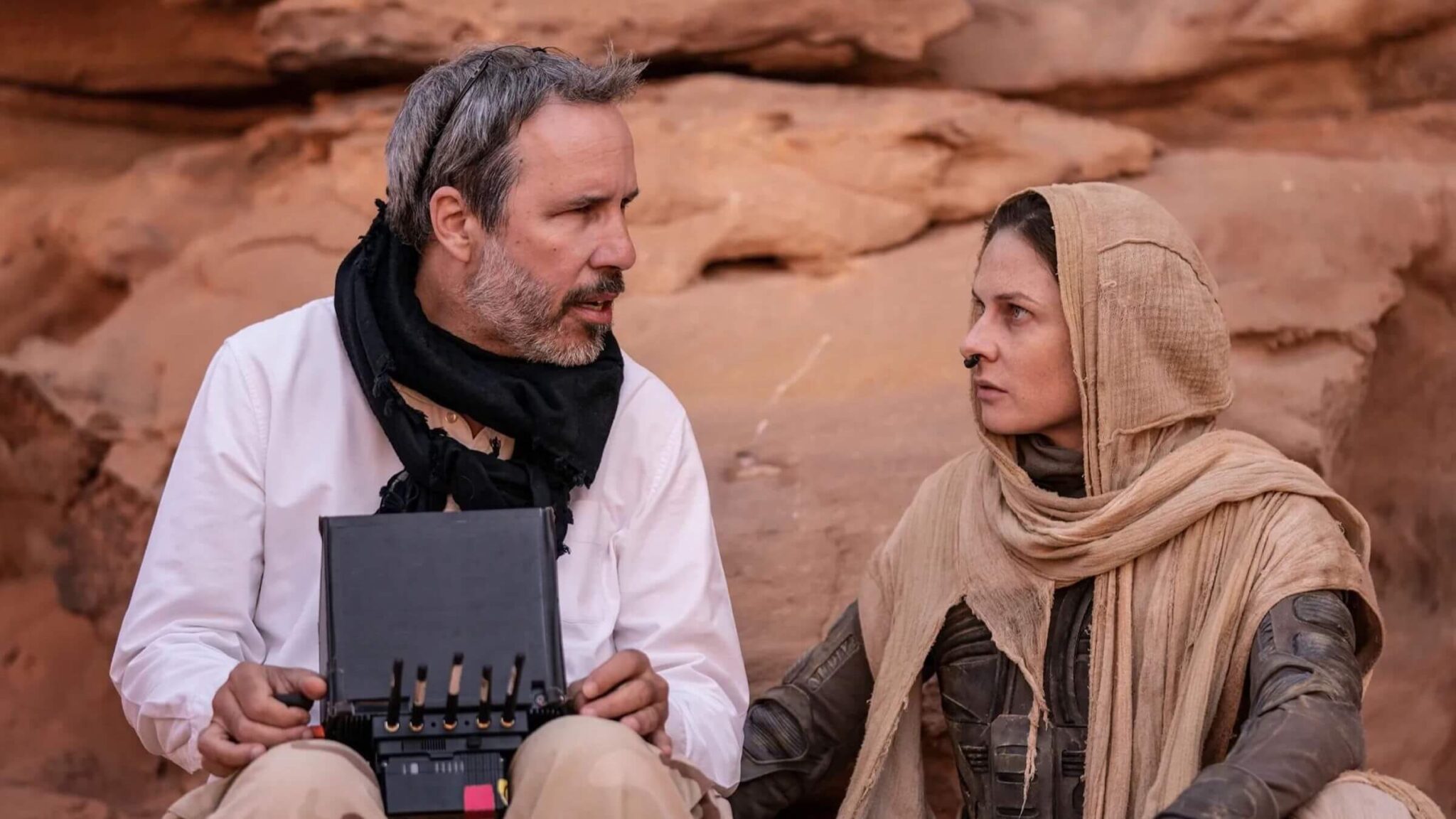How to Talk Yourself Out of Quitting the Screenwriting Dream

When you're feeling the temptation to quit your screenwriting journey, how can you talk yourself out of it?
The easiest thing to do in life is to quit. It's the immediate natural response in humans, initiated by our fight or flight instincts — a psychological switch embedded within our DNA.
When we face something difficult, we can either flip the switch to fight and weather through all of the storms we may face in pursuit of our goal, or we can flip the switch to flight, where we cut our losses and walk away from the conflicts we face.
Fighting takes effort, courage, perseverance, and patience.
Quitting is simple and easy.
In the past, we've discussed the topic of when screenwriters should give up.
Read ScreenCraft's When Should Screenwriters Give Up?
We're taking this topic in an even more proactive direction, shifting from the discussion of your options and reasoning to offering concrete ways to talk yourself out of giving up on your screenwriting dreams.
During your screenwriting journey, you're going to hear a voice always whispering in your ear. This is your natural fight or flight survival instincts speaking to you, quietly relaying your options.
Here we feature that psychological voice's most common reasons to quit and then offer you actual Hollywood truth that will help talk yourself out of taking the easy way out.
Use this list throughout your screenwriting journey as you face these whispers throughout your career.
"You don't know anyone in Hollywood. There's no way you can compete with those that do."
Make no mistake — this is an easy excuse to quit. Your survival instincts are trying to offer you the most effortless reason to stop taking the constant psychological abuse of rejection and silence that you get from Hollywood.
But nothing could be further from the truth. Yes, if you're born into the industry with instant contacts within the business, there's undoubtedly an immediate perceived advantage. However, once you start to listen to the stories of successful screenwriters, filmmakers, and actors, you'll begin to see a common trend — most of them start with no direct contacts in the industry.
You're in good company in that respect.
Many successful screenwriters weren't even born in Los Angeles. They weren't raised in or around the film and television industry. They all made the trek to Los Angeles later in their lives to pursue their Hollywood dreams, or they stayed within their geographical disadvantage and found a way to break in.
So you can shut that voice's reasoning down quickly.
"You're too young and inexperienced. No one is going to take a chance on you."
Experience is earned through writing. The more you write, the more you learn. The more you learn, the more experience you have.
Age is relative. S.E. Hinton wrote one of the most celebrated novels of all time — The Outsiders — when she was sixteen-years-old. Two years later, when she was a freshman in college, the book was published and went on to sell more than 14 million copies, with an average of 500,000 more selling each year.
There's no beginning age to excellent writing. All that you need is a great story and a general understanding of the structure of cinematic storytelling.
Read ScreenCraft's 10 Screenplay Structures That Screenwriters Can Use!
And some knowledge about the screenwriting format will help.
Learn the best way to structure your screenplay with this free guide.
Beyond that, you gain experience by writing scripts. Don't make the mistake of putting all of your eggs in one script's basket. Your first script will always be your worst. You need to hone your craft. The best way to get screenwriting experience is by writing scripts quickly (within 3-5 months) and continuing until you have a stacked deck of 3-5 great screenplays.
And keep in mind that those 3-5 screenplays won't necessarily be the first 3-5 scripts that you write. They may be the best 3-5 scripts out of 10 that you've written over a two-year period.
Too many screenwriters equate "experience" with screenwriting jobs. You won't get any screenwriting jobs if you haven't written a good number of screenplays. While it at first seems like a Catch 22, it's not. You gain experience by writing on spec (writing on your own under the speculation that you'll sell the scripts).
There are thousands of screenwriters out there — and hundreds of professionals — that would love to be young again. And experience is quickly earned through one action — writing.
"You're too old."
There are lots of screenwriters over 40 still grinding away. In fact, many don't even see success until their thirties are far behind them.
While Hollywood may be obsessed with youth, they really don't care how old you are as a screenwriter — as long as you can spin a great cinematic tale.
You may be in your 40s, 50s, 60s, or more, but if you have a great story to tell and have told it well through the art and craft of a screenplay, you're just as relevant as a twenty-something just out of film school.
"You've been at it for many years, but it's just not happening."
The success stories we read in the trades and hear about in writing conferences can be deceiving.
Every "overnight success" story is usually the result of a decade or more of failure, rejection, and missed opportunities. The writer may have made their first sale and then watched it produced with box-office success, but 99.9% of the time, those stories don't include the number of years and screenplays put in before that success came.
Once again, you're in good company because most of the professional screenwriters you see credited with Hollywood's biggest and best movies struggled for ten years or more before something hit.
They took classes, attended writing conferences, read screenwriting books, submitted to seemingly endless contests, and had little to nothing to show for those efforts — until, again, something hit.
"Nobody wants to read your scripts, and when they do, nobody likes them."
You've submitted to the contests, you've queried production companies, you've tried to get representation — but nothing is coming from any of those efforts.
Welcome to the club. Every screenwriter, successful or not, goes through this type of rejection — it just happens in different tiers.
When you're first starting out, the rejection comes through contest submissions and blind queries.
When you level up and get into meetings, you're pitching scripts that no one is willing to buy.
When you've established yourself with either a sale or, more likely, some writing assignments, you try to leverage that success and pitch some original spec scripts — to no avail.
The rejection never stops, even at the highest levels of professional screenwriting. You just need to keep pushing and keep moving forward. That's what EVERY successful screenwriter has done.
Ask yourself why people aren't responding to your work. Go to the people that have rejected you and ask for feedback. Purchase coverage with your contest submissions.
And also remember that there may be several reasons why your screenplays are being rejected — beyond them being written poorly in the subjective eyes of those that read them.
Read ScreenCraft's What Criteria Does Hollywood Use to Pass on a Screenplay?
Not to sound redundant, but, again, you're in good company because every screenwriter on every tier experiences this. The successful ones don't quit because of this fact.
Three Effective Practices to Quiet that Inner Voice
So we've shined a light on the voice within you that tries to take the easy way out. We've exposed that voice's reasoning and offered concrete proof that those declarations are false.
Sometimes you need a little more pushback to quiet that voice.
Here are three things you can do to shut that voice out and flip that switch from flight to fight mode.
1. Watch Someone Else Persevere
You can read a book about someone's inspiring story of overcoming the odds — there are plenty of them.
But since we're cinematic storytellers, it's even more helpful to go to our industry for a little inspiration. Watching movie characters defy the odds is a great way to shut that inner voice up.
You can watch a character defy all odds and see his dreams come true before your eyes.
You can watch a character get rejected over and over...
...until they finally achieve their goal.
You can watch a character declare his inability to win the seemingly impossible battle but name his ultimate goal...
...and then watch the emotion pour out as he succeeds at the latter.
2. Find a Different Process
If you always write the same way, at the same time, and in the same place, maybe you need to shake things up a bit and try something different.
Perhaps you're just bored with the way you've structured your writing process.
Try something different. Think outside of the box.
Read ScreenCraft's 5 Ways Screenwriters Can Think Outside the Box!
3. Create the "I Won't Quit" Mindset
As featured in the blog post How to Not Give Up – 8 Strategies for Not Quitting, all that you need to do is to constantly tell yourself the following:
- I persist when things get tough.
- I will either find a way or make one.
- Every problem has a solution, and I have the perfect ability to find it.
- Every day I gain more knowledge and insight about what works and what doesn’t, which means I’m getting stronger and wiser.
- Setbacks are temporary.
- I will find a way through this.
- Think! What’s the best thing to do now?
When you create this mindset, you create a shield of armor that is impenetrable to the whispers and suggestions of your fight or flight defense mechanism.
Now that we've got this nonsense about quitting out of the way, get writing!
Ken Miyamoto has worked in the film industry for nearly two decades, most notably as a studio liaison for Sony Studios and then as a script reader and story analyst for Sony Pictures.
He has many studio meetings under his belt as a produced screenwriter, meeting with the likes of Sony, Dreamworks, Universal, Disney, Warner Brothers, as well as many production and management companies. He has had a previous development deal with Lionsgate, as well as multiple writing assignments, including the produced miniseries Blackout, starring Anne Heche, Sean Patrick Flanery, Billy Zane, James Brolin, Haylie Duff, Brian Bloom, Eric La Salle, and Bruce Boxleitner. Follow Ken on Twitter @KenMovies
For all the latest ScreenCraft news and updates, follow us on Twitter, Facebook, and Instagram.
Tags
Get Our Screenwriting Newsletter!
Get weekly writing inspiration delivered to your inbox - including industry news, popular articles, and more!



























